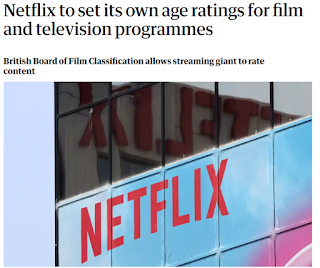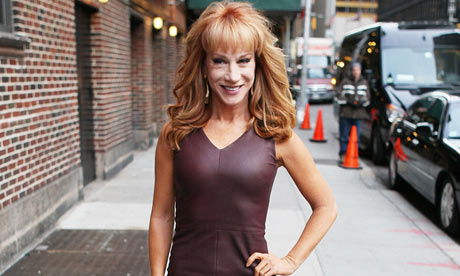Set up in 2002, when it initially shadowed the work of the ITC and other regulators, it assumed full power for the regulation of the broadcast and telecoms industries on 29th Dec 2003, under the Communications Act 2003
It was (and is) widely referred to as a 'super regulator', in recognition of it subsuming FIVE previous regulators:
So, it took over regulation of TV and radio (the broadcast industries) and telecoms (provision and operation of telephone/web [ISPs], including pricing and access to the national cable network laid by BT)
Labour had made much of the growing importance of the digital economy, and argued that the processes of digitisation and convergence made a cross-media regulator necessary. This seems a reasonable argument ... indeed, so good one has to wonder why advertising, the press and film were permitted to continue with their self-regulators (ASA, PCC, BBFC)! There are some contradictory but useful arguments here:
- a super reguator made sense in the context of convergence (with the likes of Sky and Virgin offering their own TV services, the telecoms/TV distinction was growing blurred - triple play is now offered by several companies: TV, phone, broadband/web)
- note though that OfCom was quickly shown to be a regulator with a fairly deregulatory ethos (eg it has continually loosened the requirements on ITV especially as a public service broadcaster to broadcast children's and regional programming, and permitted the timing of main news bulletins to be altered, plus allowed the previously independent ITV franchise companies to merge)
- Labour, especially Chancellor Gordon Brown, talked up the importance of the creative industries and the digital economy, and saw OfCom as one means of helping to encourage the growth of this wired Britain - again, whilst it has more powers than the PCC, it was not set up to constantly interfere in the operations and functioning of the media industries!
- Labour argued the UK needed large media companies, so permitted a degree of monopoly in ITV
- BUT, if convergence made such a strong case for a super regulator, why not also bring in the ASA, BBFC and PCC (ad'g, film, press)?
- there is a reasonable argument here: although the DCMS effectively oversees all media regulation, bringing ALL media regulation under one roof would raise fears of government interference. As our political system usually presents a left-wing Labour or right-wing Conservative (not coalition as at present) government, this would be seen as a risk
- so the Tories right now are complaining loudly about the BBC referring to spending CUTS, insisting they should refer instead to SAVINGS
- furthermore, wouldn't they be penalising the PCC etc for no apparent reason? (Labour praised the PCC repeatedly!)
- perhaps a complicated system maintaining some self-regulated parts and some statutory is actually the best solution?
- there is also the historical context: the telecoms and broadcast industries initially developed as state monopolies with strict licensing systems in place as private provision developed; there isn't the same free market history as for the press. Furthermore, given the extreme importance of media pluralism (a multiplicity of voices and views) within any functioning democracy, the broadcast media had to be tightly regulated as spectrum scarcity historically made this impossible (we only have to go back 30 years for a 3-channel UK TV system, C4 not being launched until 1982). To summarise: the broadcast media developed as state-owned monopolies, NOT as a pluralist free market, so self-regulation wasn't a straightforward proposition
- a very complex set of regulations grew up around commercial TV (ITV), though the BBC was (and mostly remains) largely a self-regulator. Nonetheless, as the government sets its funding every ten years (less, under the current hostile Tory government!), there is clear scope to influence it, and the BBC is widely percieved to have been bullied and influenced by the current government (who still seem to think of the Beeb as the British Bolshevik Corporation [the 80s Thatcher government frequently labelled the BBC thus])
- the broadcast media have traditionally been viewed as more powerful, more likely to influence its consumers, than the press. Indeed, much of the early effects theories arose from reactions to the way the Nazis used film, TV and radio for propaganda purposes in the 1920s to 1940s (leading to the creation of influential groups such as the Frankfurt School)
Another very useful to look at this is to consider the example of News Corporation. The concept of a super-regulator means that its telecoms (Sky's telephone and ISP) operations come under the auspices of OfCom. Its TV holdings (Sky) also comes under OfCom's wings (although, as its not a public service broadcaster [PSB], it is not as tightly regulated as ITV, BBC, C4, C5). That is surely a good thing; the regulator is able to take into consideration its cross-media holdings and operations when called upon to consider cases involving Sky, and can also consider this when reviewing the structure of these media industries, including its reviews into pricing and monopolies.
But what about the other three main media regulators? As it happens, each of the ASA, PCC and BBFC also regulate subsidiaries of the global conglomerate that is News Corporation. Sky in particular is a major advertiser, spending 100s of £millions each year on marketing (ASA). The News International subsidiary runs the UK's leading tabloid (
S*n/NoTW) and broadsheet (
Times/Sunday Times) [PCC], while the company also owns 20th Century Fox [BBFC], producer of
Avatar. Indeed,
the marketing for Avatar to some extent involved all forms of media! News Corporation is not shy of exploiting its cross-media holdings for the synergies offered by horizontal integration, in one notorious case publishing no fewer than 13 articles on Avatar or 3D in one edition of
The S*n! Then of course there is the ongoing matter of News Corporation's intentions to buy the remaining 60% of the shares in BSkyB. This was seen as a matter for OfCom - but why not the PCC? Surely the issue here is not so much about this notorious right-wing zealot Murdoch operating a TV network, but about this same gentleman (behind the lovely Fox News lets not forget; biased
domestic news remains illegal in the UK, but give it time...) also having a dominant share of the press too? Don't we need an all-media regulator to effectively regulate such cross-media giants? A true super-regulator for such super-media conglomerates?!
We could make some similar points about Richard Desmond's media holdings which, in addition to his porn channels/publications, includes Channel5,
The Star and the
Daily/Sunday Express. He's already used his tabloid to heavily hype up C5's signing of the show Big Brother.
OfCom is very different to the PCC...
- It is a statutory regulator
- It has real powers (to fine, ban and even withdraw broadcast licenses, which it has done with several porn TV stations, but also to intervene in the markets/pricing of telephony/ISPs)
- It is not simply the regulator for ONE industry
- Its budget reflects all these points: £121.6m, compared to the PCC's £2m (unchanged for many years). £76m comes from the Dept for Business, Innovation and Skills, £600k from the DCMS, and the £55.1m remainder from the broadcast/telecoms industries
- There is a schism at its heart: whilst its plainly trying to take over the regulation of the BBC from its BBC Trust, OfCom only regulates small parts of the BBC's operations in 2011
Under Labour, OfCom was very high profile and thrived, undertaking a rapid expansion with a series of in-depth investigations and reports which effectively set the agenda for government policy. The Conservatives are ideologically opposed to this, and de-regulation of all business, no matter what ties it may have to culture or public opinion, is a core Tory value. Cameron and his Media spokesman, now Culture, Media and Sport Secretary at the DCMS, Jeremy Hunt, were clear and vociferous in their opposition to OfCom exerting such power, and it was Tory policy to clip OfCom's wings.
Which they swiftly have done as part of the current coalition government...
28.2% of OfCom's budget is to be cut. While there are widespread public spending cuts under way, this is more than most (and amounts to 170 jobs, effectively ending OfCom's reign as supreme creator of media policy!). They have fared better than organisations such as the UKFilm Council though (not a regulator), which has been scrapped as part of the much heralded 'bonfire of the quangos'.
Even so, as the Conservatives have traditionally been hostile to the BBC, OfCom may yet be handed regulation of the Beeb...
The
Peacocok Ctee (1985), set up to review financing of the BBC, was expected by thatcher to recommend its privitisation. The 1986 Peacock Report DID suggest selling off Radios 1 + 2, BUT explicitly backed the publicly-owned BBC as a necessary evil to maintain general broadcasting standards, recognising that privatising it would lead to a rapid tabloidisation or dumbing down of TV in general.
The government has, though, already made some
changes to the way OfCom operates:
The government is to merge independent communications regulator Ofcom with its postal service counterpart Postcomm as part of the quango cull announced today.
Ofcom is also to lose powers relating to policy setting, which are to be returned to the Department for Culture, Media and Sport, and will no longer control decisions related to independent ownership of television franchises, such as ITV and Channel 5, but all its core communications functions will remain.
It will, however, now be allowed to charge fees for satellite filings when made to the International Telecommunications Union.
Speculation had surrounded the future of Ofcom since before the election, and many had anticipated the quango would be cut altogether in today's announcement.
The coalition today published the Postal Services Bill which will provide for the transfer of Postcomm's functions to Ofcom, maintaining its focus on securing a "universal postal service".
quick summary of the thinking behind deregulation...
The current coalition government have launched a '
Red Tape Challenge', seeking to identify legislation (laws) that can be scrapped. They, and papers such as the
Mail, habitually refer to regulation as 'red tape' or 'bureaucracy', overlooking the context in which such rules emerged (often in response to some crisis). Regulation is seen as a barrier to entrepreneurialism, and to business in generel; in theory, the less there is of this the freer businessmen are to grow businesses and create jobs. This goes against traditional left-wing values, which sees the power of the state as a necessary brake on the free market to protect the poor and vulnerable (
see this eg), though such are our contemporary politics that
Labour has also attacked red tape!





